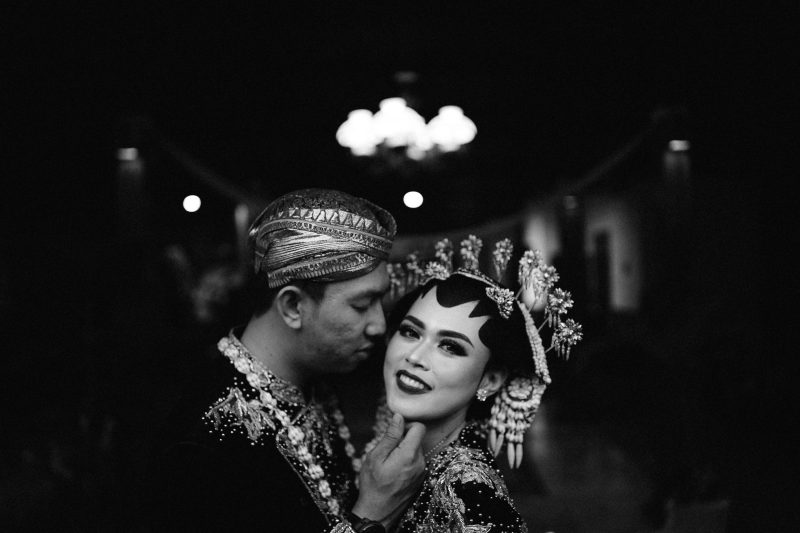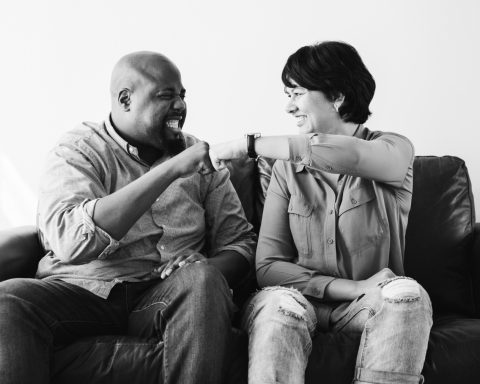In a world where swiping right has become as familiar as saying “hello,” and wedding hashtags trend before vows are exchanged, the dimension of marriage readiness takes on a new meaning. Beyond the romance and the flurry of planning lies a deeper question: “Am I truly prepared for a lifelong commitment?”
Marriage readiness is more than a personal milestone. It often reflects a person’s willingness to fulfill specific social roles, expectations, and responsibilities. In many cultures, marriage is considered a sacred institution, a bond that extends beyond two individuals to unite families and communities.
However, cultural expectations surrounding marriage readiness have long been significant in societies worldwide. These expectations are deeply rooted in traditions, norms, and values that shape how individuals perceive themselves and their community roles.
Navigating these intricate dynamics can pose considerable challenges, as individuals must reconcile traditional values with modern desires, balance familial pressures with personal autonomy, and manage potential conflicts between personal timelines and societal expectations.
This article will explore the emotional, pragmatic, and societal dimensions of marriage preparedness, with a particular focus on the influence of cultural values, traditions, familial expectations, and societal conventions.
Understanding cultural influences on marriage readiness
Amid a global landscape of cultural mingling and thriving diversity, marriage readiness extends beyond a uniform, universal standard. Instead, it dances to the rhythm of cultural nuances and traditions that vary widely across societies.
Cultural influences play a pivotal role in shaping when and how individuals embark on the journey of matrimony, from arranged marriages in some parts of Asia to the embrace of individual choice in the West.
Exploring cultural influence on marriage perception and readiness
Studies show that cultural factors intricately contribute to the tapestry of perceptions surrounding marriage readiness. Culture crafts a lens through which readiness is viewed, harmonizing or conflicting with secret desires and painting diverse portraits of matrimonial preparedness.
In collectivist societies, where family honor and communal bonds hold great significance, there is often an emphasis on early marriages. Conversely, individualistic cultures prioritize personal growth and self-discovery, often leading to delayed marriages. Furthermore, certain cultural traditions involve parents or extended family members in both partner selection and the assessment of marriage readiness.
Impact of tradition, religion, and societal norms on marriage expectations
Exploring marriage expectations reveals the substantial influence of tradition, religion, and societal norms on this deeply rooted institution. Below are factors that shape individuals’ perspectives on their readiness for marriage:
Traditional influence
In contrast to prevailing practices, traditions infuse marriage expectations with historical significance. In societies where arranged marriages are customary, family elders orchestrate unions based on lineage and social standing, emphasizing continuity.
Conversely, love and compatibility may take priority in more modern cultures, challenging traditional norms.
Religious influences
The sanctity of marriage is molded by religious influence. Conservative doctrines may stress early unions, viewing them as a divine mandate for procreation.
In contrast, liberal interpretations promote individual choice and mutual respect, allowing readiness to evolve with personal growth.
Social influence
Societal norms mirror collective values and influence marriage expectations. Communities that value stability may encourage timely marriages, while those emphasizing career pursuits may embrace delayed unions.
Norms also intersect with gender roles, impacting when and how individuals are considered “ready” for marriage.
Read more: The Romance Gap: Gender Stereotypes in Traditional Dating Norms
Importance of personal readiness
Personal readiness for marriage is vital to ensuring emotional maturity, communication skills, and a strong sense of self. This foundation fosters a healthier partnership, aiding conflict resolution and adaptability.
When individuals understand their aspirations, boundaries, and emotional needs, they enter marriage equipped to navigate challenges, promote mutual growth, and sustain a fulfilling lifelong connection.
Recognizing individual readiness for marital success
With the escalating divorce rate and concerns about marriage readiness, selecting the right partner becomes crucial. Readiness equips couples to communicate effectively, handle conflicts constructively, and adapt to the evolving dynamics of shared life.
Ultimately, a successful marriage is not solely built on external factors but on the profound readiness of each individual to wholeheartedly engage, support, and cherish their chosen life partner.
Moreover, individual readiness stands as the cornerstone of a prosperous marriage. When both partners embark on this journey with self-awareness, emotional intelligence, and a clear understanding of their values and aspirations, the foundation is laid for a resilient and harmonious relationship.
Exploring self-reflection and introspection for marriage readiness
Self-reflection and introspection are vital compasses in navigating the path to marriage readiness. Taking time to delve into one’s values, goals, and emotional landscape enables a clear understanding of personal desires and capabilities. This process reveals strengths that contribute to areas needing growth, equipping individuals to communicate expectations effectively.
In contrast, introspection fosters the ability to address potential conflicts, recognize compromises, and establish boundaries. It empowers the individual to differentiate between societal pressures and authentic aspirations, ensuring that the decision to embark on this lifelong commitment is rooted in self-awareness, promoting a more fulfilling marital journey.
Communicating marriage readiness concerns
Being honest about preparedness issues is vital to a joyful and rewarding marriage. It is possible for partners to share their individual views, feelings, and expectations through open and honest communication.
Tips for improving family and community communication
Effectively conveying one’s concerns to family and community members is paramount, particularly in marriage decisions. Consider these tips when conveying your worries:
- Active listening: Communication is a two-way process. Listen actively to the responses and viewpoints of your family and community members.
- Body language: Nonverbal cues, such as maintaining eye contact, nodding, and open gestures, convey your attentiveness to listen and engage.
- Uninterrupted sharing: Allow others to express their thoughts thoroughly before responding. This demonstrates respect for their viewpoints and encourages a more meaningful exchange.
- Give feedback: Providing feedback shows you’ve understood their point of view.
- Manage your tone: Maintain a calm and respectful tone when discussing concerns. Avoid using confrontational or aggressive language that might hinder effective communication.
- Concise statement: State your concerns concisely and clearly. Avoid long-winded explanations, as they can lead to confusion or disinterest.
- Focus on one topic: Keep the conversation centered on the specific concern you want to address.
- Express emotions appropriately: It’s okay to show your emotions, but do so respectfully and calmly.
Expressing personal values while respecting cultural norms
Sharing personal values while respecting cultural norms requires sensitivity and effective communication. Here’s how:
- Choose the right setting: Opt for a comfortable and private environment to discuss your concerns without distractions.
- Frame positively: Present your ideas in a positive light. Focus on the benefits and potential positive outcomes that align with your aspirations and cultural values.
- Acknowledge traditions: Begin by recognizing the importance of cultural norms and traditions.
- Seek common ground: Emphasize shared values and goals. You can bridge the gap and foster understanding by finding commonalities between your personal aspirations and cultural norms.
- Offer compromises: Propose compromises that honor your values and cultural norms, showing flexibility and respect.
Keep in mind that effective communication entails grasping, empathizing, and genuinely aiming to connect diverse viewpoints. By participating in discussions sincerely, you can express your aspirations without upsetting cultural norms.
Challenges in navigating cultural expectations
The challenges of navigating cultural expectations are particularly significant in the realm of marriage preparedness. Balancing these expectations involves harmonizing personal values with familial duties, which can trigger inner turmoil and remorse.
This collision between convention and individual ambitions frequently leads to a precarious path of anticipated outcomes. Here are additional complications encountered while navigating cultural expectations:
- Communication styles: Cultural differences often lead to variations in communication styles, including directness, formality, and nonverbal cues. Misinterpreting or misunderstanding these cues can lead to confusion or offense.
- Social norms: Each culture has its own social norms governing behavior, etiquette, and interactions. Adhering to these norms can be challenging, especially for individuals who are unfamiliar with them.
- Hierarchy and authority: Across cultures, the concepts of authority and hierarchy can vary significantly. Showing proper respect and deference to individuals in positions of authority can be difficult when the norms are unfamiliar.
Effectively navigating these challenges demands a delicate approach, fostering identity and fulfillment while balancing tradition, personal growth, and societal evolution. To adeptly navigate cultural expectations in marriage preparedness, individuals must cultivate a robust sense of cultural awareness.
Embracing cultural identity and autonomy
In the journey of embracing cultural identity and autonomy, one unlocks the doors to personal growth and well-being. Here are some takeouts that highlight the significance of embracing cultural identity:
- Positive impact on mental health;
- Respecting diversity;
- Enhancing social connections; and
- Overcoming challenges and gaining opportunities.
Valuing and embracing diversity while fostering individual autonomy provides a platform for personal and collective development. It ultimately fosters a harmonious interplay that nurtures a more integrated community, where the diverse fabric of cultural identities intertwines to form a cohesive whole.
Seeking support and building a supportive network
When encountering marriage readiness issues, seeking support and establishing a supportive network is crucial for maintaining resilience and overall well-being. Here are some steps you can take:
- Identify trusted individuals: Recognize friends, family members, mentors, or colleagues you trust and feel comfortable opening up to about your challenges.
- Initiate conversations: Reach out to these trusted individuals personally to initiate conversations. Share your struggles and successes openly and honestly.
- Schedule regular check-ins: Set up a schedule with your chosen support network. This could be weekly or as needed, providing a consistent platform to share updates and receive guidance.
- Express vulnerabilities: Be willing to express your vulnerabilities and concerns authentically. Sharing your true feelings can foster deeper connections and empathy.
- Be open to feedback: Accept constructive feedback from your support network with an open mind. They might offer valuable insights you still need to consider.
- Seek professional help: If your challenges are particularly overwhelming, consider seeking professional help from therapists, coaches, or counselors specializing in the relevant area.
By actively engaging in these practical steps, you can harness the power of a supportive network to navigate readiness challenges effectively, foster resilience, and promote your well-being.
In conclusion
Building a thriving marriage goes beyond mere preparedness; it includes finding the right partner and cultivating essential qualities. Sometimes, the focus on readiness or the search may vary in its depth and approach.
It’s imperative to strike a balance between upholding cultural norms and pursuing one’s own goals, and the path to marriage preparedness is fraught with cultural minefields. Nevertheless, achieving success in the face of adversity is possible via cultivating open communication, pursuing shared goals, and accepting personal development.
In the end, people are propelled toward a more satisfying and robust life journey by integrating cultural identity and personal autonomy, marked by solidarity, acceptance, and celebration of one’s diversity.
If you would like to see more resources on readiness, check out the Family Science Labs. The lab uses the research of the Institute for Life Management Science to produce courses, certifications, podcasts, videos, and other tools. Visit the Family Science Labs today.
Photo by rangga ispraditya on Pexels






